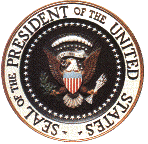
Andrew Johnson

President of the United States of America
1865 - 1869

![]()
W
elcome to the Johnson Family Association's History section about "Famous and Notable Johnsons - Johnstons." This portion of our site honors Andrew Johnson, who was elected as Vice President of the United States of America under President Abraham Lincoln and upon the death of Lincoln in 1865, became the 17th President.This site is sponsored by the Johnson Family Association, a national, non-profit family club devoted to gathering and preserving the family history of all Johnsons - Johnstons. If you came directly to this page, be sure and visit the family club's HOME page, the family NEWSLETTER, the Johnson Family HISTORY section the QUERIES section and our other sites. Click on back to HOME at the bottom of this page to get started.
If you have information and records on Johnsons-Johnstons and their descendants who have served in government, please send this info to us to preserve in the Family Library.
![]()
Andrew was born 29 Dec 1808 in Raleigh, Wake Co., NC and died 31 Jul 1875 near Carters Station, Tn. while visiting his widowed daughter. Andrew was the son of Jacob Johnson (1778-1812) and Mary McDonough (1783-1856).
In 1822, Andrew was apprenticed to James Selby in Raleigh to learn the trade of a tailor. The youth ran away though after two years and went to Laurens Court House (now Laurens, SC) and later to Alabama. He returned home in 1826 to settle his apprenticeship but Selby refused. He then moved to Sequatchie Valley in Tennessee with his older brother William.
He soon returned to Raleigh to help his mother and later brought her back to Tennessee with him. He then worked briefly for Robert Maloney. He then settled in Greeneville, Tn. where he began business on his own as a tailor. He married Eliza McCardle, daughter of a shoemaker, on 17 May 1827 in Greeneville. They had five children.
Andrew never attended school. Not until after he married did he learn to read and write. He was taught by his new wife. He was the only person to serve as President who never had any schooling of any type.
I
n 1829, Andrew was elected as an Alderman of Greeneville and in 1834, as Mayor. The next year, he canvassed the state on behalf of a new state constitution. He was elected as a representative to the Tennessee State Legislature in 1835 but was defeated for reelection in 1837. In 1839, he was elected to the Tennessee State Senate. In 1843, he began his service in federal government when he was elected to his first of five terms as a Representative to the United States Congress. Andrew was a Democrat. He served until 1853, when he returned home and ran for Governor of Tennessee. He was elected and served one term until 1857.After his governorship, he was elected to the United States Senate in 1857 and served until 1862. Despite the fact that his home state of Tennessee seceded from the United States and joined the Confederate States of America, Andrew refused to join his own state. Instead, Lincoln appointed him as the "Military Governor" of the areas of Tennessee that were occupied by yankee troops.
This betrayal of the South earned him a spot on the ticket as the vice presidential candidate with Lincoln in the 1864 election. This was one of the few times in American history that the president and vice presidential candidates were from different political parties.
This finally resulted in the Republicans impeaching him. He was the only president ever to be impeached until President Bill Clinton was impeached -- once again, a Southern Democrat being impeached by vindictive Republicans. Both impeachments failed.A
ndrew's most important accomplishment as president was the Homestead Act, which gave 160 acres of free federal land to any family who lived on it for three years. This act helped open up the West after the War for Southern Independence.When his presidential term ended in 1869, Andrew returned home to Greeneville and remained out of public life until 1874, when he was elected to the United States Senate. He was sworn in on 4 Mar 1875, the only person ever to serve as President and later to serve in the Senate. His term in office was short and ended with his death a few weeks later.
Andrew was buried at Monument Hill - Andrew Johnson National Cemetery, in Greeneville.
His small home is now part of the Andrew Johnson National Historic Site in Greeneville, operated by the Department of Interior's National Park Service.
The children of Andrew and Eliza were Martha (25 Oct 1828), Charles (19 Feb 1830), Mary (8 May 1832), Robert (22 Feb 1834) and Andrew Frank (Frank) (5 Aug 1852), all born in Greeneville.
He was a grandson of Andrew Johnson, a native of Augusta Co., Va. and Hannah Hinkle and a great grandson of Arthur Johnson and Margaret Phares.
 to main Johnson Family GOVERNMENT page
to main Johnson Family GOVERNMENT page to main Johnson FAMOUS page
to main Johnson FAMOUS page to main Johnson Family HISTORY page
to main Johnson Family HISTORY page back to Johnson Family Club HOME page
back to Johnson Family Club HOME page